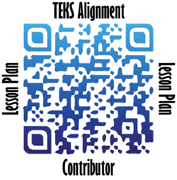 My online learning from the Library Journal webcast entitled “Participatory, Continuous, Connected: Top Trends from Library 2.014” Continued…
My online learning from the Library Journal webcast entitled “Participatory, Continuous, Connected: Top Trends from Library 2.014” Continued…
Susan Hildreth, Director, Institute of Museum and Library Services (IMLS), shared her excitement about “radical change” in library services. She emphasized the role of libraries in communities and meeting the 21st-century needs of library users and soon-to-be users alike. She began her talk referring to initiatives related to STEM, STEAM, and STREAM (various efforts to promote science, technology, reading engineering, the arts, and math learning and careers).
In addition to sharing some of the exciting projects IMLS is currently funding, Ms. Hildreth talked about her views on the role of libraries in makerspaces and badging. When thinking about virtual professional development for school librarians, I am most interested in badging, which Ms. Hildreth describes as making informal learning visible. Two challenges she cited in badging related to who decides the criteria for a particular badge and how are various levels of competency part of the process.
To share one school librarian example, the Texas Learning4Life Implementation Team crowdsourced the TEKS Alignment wiki that aligns the Texas Essential Skills (TEKS) English language arts and reading standards for K-12 learners with the American Association of School Librarians Standards for the 21st Century Learner.
After standards were aligned, we formed a Lesson Plan Peer Review Committee and began soliciting exemplary lesson plans for publication on the site. As of this date, thirty-nine lesson plans have gone through a peer review process and have been published. A number of the librarians coauthored their lesson plans with classroom teachers and specialists and ALL lesson plans are based on coteaching (a school librarian and classroom teacher working simultaneously with students). Each contributor earned a badge, which they can display on their library Web site and include in their monthly newsletters, annual reports, and on their résumé.
Making this kind of informal learning formal is one way for school librarians to show they are continuing to develop their lesson planning and collaboration skills while on the job. This badge carries meaning to those who have earned it, and hopefully to those with whom they share it–principals, district-level librarian supervisors, and classroom teacher colleagues.
Yes! to virtual professional development in all of its many manifestations. This is an innovation from which we can all benefit.
And I highly recommend following Ms. Hildreth on Twitter (@IMLSDirector), reading more about the IMLS focus especially if you are considering a grant proposal to fund an innovation, and following the IMLS blog.
Building a Culture of Collaboration blog readers: Check out the Library Journal webcasts and Library 2.014 archives for outstanding opportunities to explore — from topics about which you are passionate to ones about which you are clueless! Taking full advantage of online professional development is an innovation that meets the needs of time-strapped librarians and educators who have a desire to engage in participatory, continuous, and connected professional development.
Image: Badge from the TEKS Alignment Wiki
